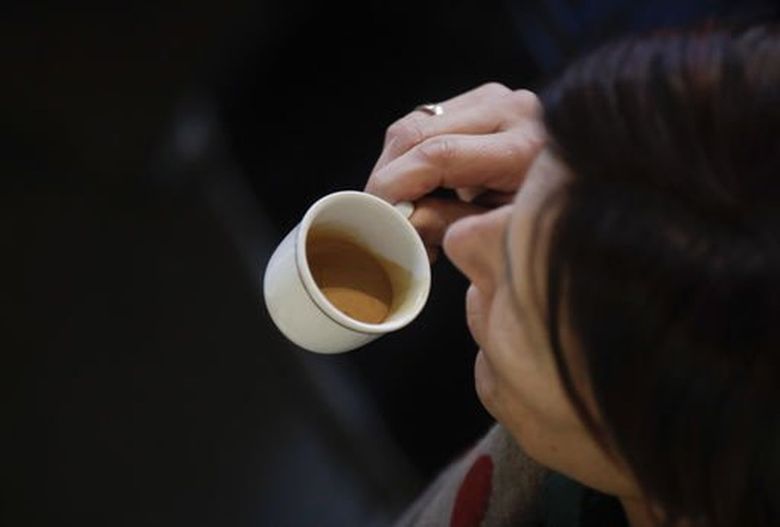Sleep is an essential part of our daily routine, allowing our bodies and minds to rest and rejuvenate. However, various factors can affect the quality and duration of our sleep, including our consumption of caffeine and alcohol.

Credit: www.seattletimes.com
The Role of Caffeine
Caffeine is a widely consumed stimulant found in popular beverages such as coffee, tea, and energy drinks. While it can boost our alertness and productivity during the day, consuming caffeine too close to bedtime can significantly impact our ability to fall asleep and the quality of our sleep.
When we ingest caffeine, it enters our bloodstream and stimulates our central nervous system. Its effects can last for several hours, making it more difficult to wind down and achieve a state of relaxation necessary for sleep. Studies have shown that consuming caffeine even 6 hours before bedtime can decrease total sleep time and increase the time taken to fall asleep.
To optimize your sleep, it is advisable to limit your caffeine intake, particularly in the afternoon and evening. If you are sensitive to caffeine or have trouble sleeping, it is recommended to avoid caffeine entirely after lunchtime.
The Impact of Alcohol
On the other hand, many people believe that alcohol can help them fall asleep faster. While it may make you feel drowsy initially, the impact of alcohol on sleep is more complex than it seems.
Alcohol is a sedative that affects the neurotransmitters in our brain, primarily increasing the production of gamma-Aminobutyric acid (GABA), which slows down brain activity. This can initially make you feel relaxed and induce sleep.
However, as alcohol is metabolized, its sedative effects wear off, resulting in sleep disturbances. It can disrupt our sleep cycle by reducing the amount of time spent in the restorative Rapid Eye Movement (REM) sleep stage. This leads to fragmented and less restful sleep, causing daytime drowsiness and an increased likelihood of waking up during the night.
Moreover, alcohol is also a diuretic, causing frequent trips to the bathroom and further disrupting the continuity of sleep.
Best Practices for Sleep Quality
If you’re finding it difficult to get quality sleep, here are some best practices to consider:
- Avoid consuming caffeine at least 6 hours before bedtime.
- Limit alcohol intake, particularly in the evening.
- Create a relaxing bedtime routine that helps signal your body to wind down.
- Ensure your sleep environment is cool, quiet, and free from distractions.
- Avoid screens, such as phones and laptops, before bed as the blue light emitted can interfere with your sleep hormone melatonin.
- Exercise regularly, but avoid vigorous exercise close to bedtime.
- Avoid large meals, spicy foods, and excessive liquids before bed, as these can cause indigestion and disrupt sleep.

Credit: www.sleepfoundation.org
The Bottom Line
Both caffeine and alcohol can significantly impact the quality and duration of our sleep. While caffeine can make it harder to fall asleep, alcohol may lead to disrupted and fragmented sleep.
To ensure optimal sleep, it’s best to consume caffeine in moderation and avoid it in the afternoon and evening. Similarly, limiting alcohol intake and avoiding it close to bedtime can help promote better sleep quality and overall well-being.
| Caffeine | Alcohol |
|---|---|
| Stimulant | Initial sedative effects |
| Can decrease total sleep time | Fragmented sleep, reduced REM sleep |
| Avoid for several hours before bedtime | Limit intake, particularly in the evening |
By being mindful of your caffeine and alcohol consumption, you can make positive changes and enjoy a more restful and rejuvenating sleep.
Frequently Asked Questions On The Unexpected Impact Of Caffeine And Alcohol On Sleep
Q: How Does Caffeine Affect Your Sleep?
A: Caffeine can disrupt sleep by increasing alertness and delaying the onset of sleep, making it harder to fall asleep.
Q: Does Caffeine Affect The Quality Of Your Sleep?
A: Yes, caffeine can reduce the amount of deep sleep you get, leading to a less restorative sleep experience.
Q: Can Caffeine Cause Insomnia?
A: Consuming caffeine close to bedtime can interfere with your ability to fall asleep and stay asleep, potentially leading to insomnia.
Q: Is It Okay To Drink Alcohol Before Bed?
A: While alcohol may help you fall asleep faster, it can negatively impact the quality of your sleep, leading to frequent awakenings during the night.
Leave a Reply